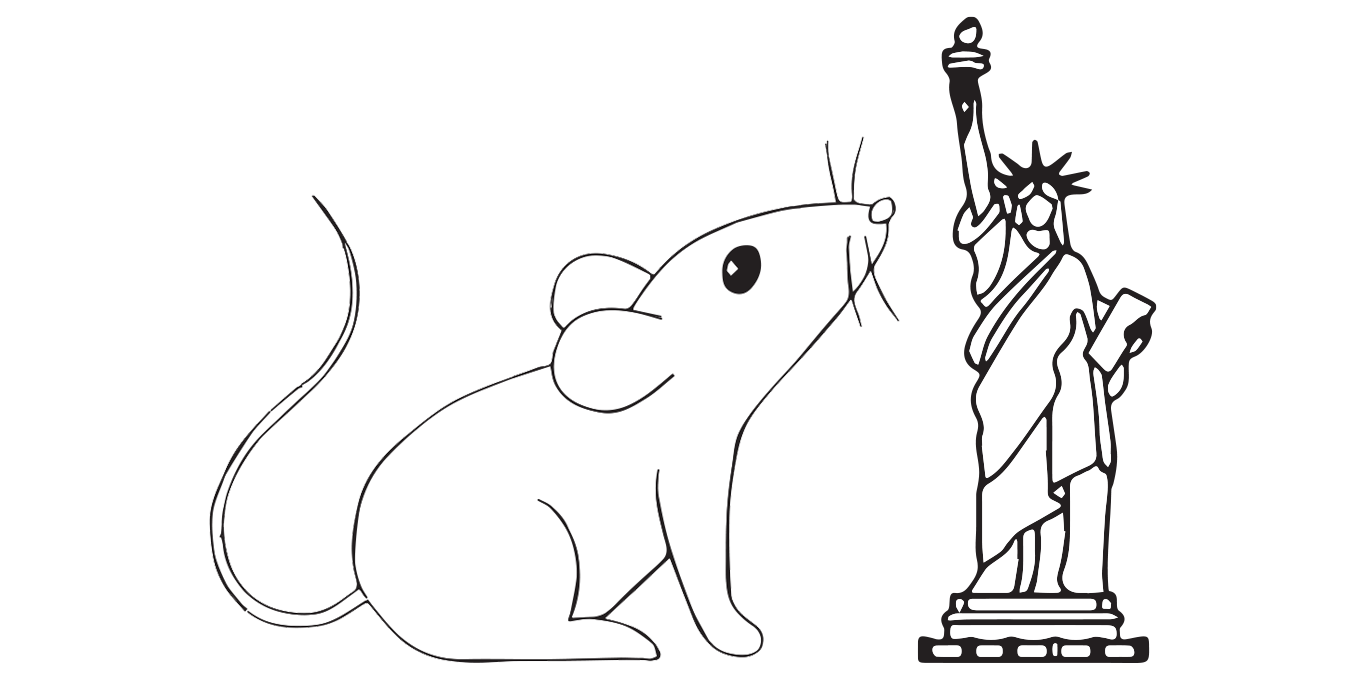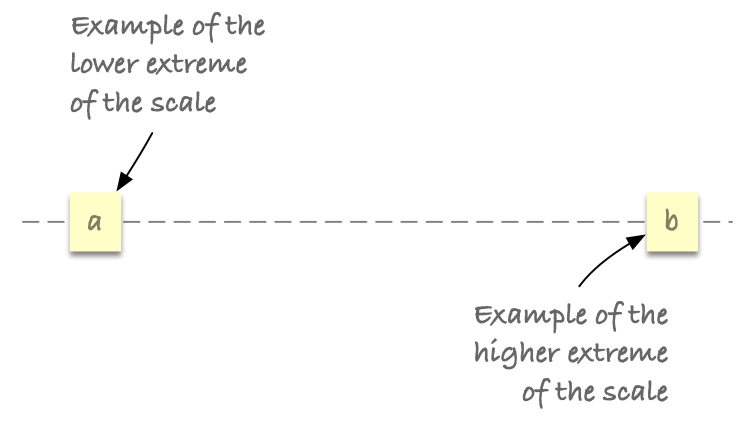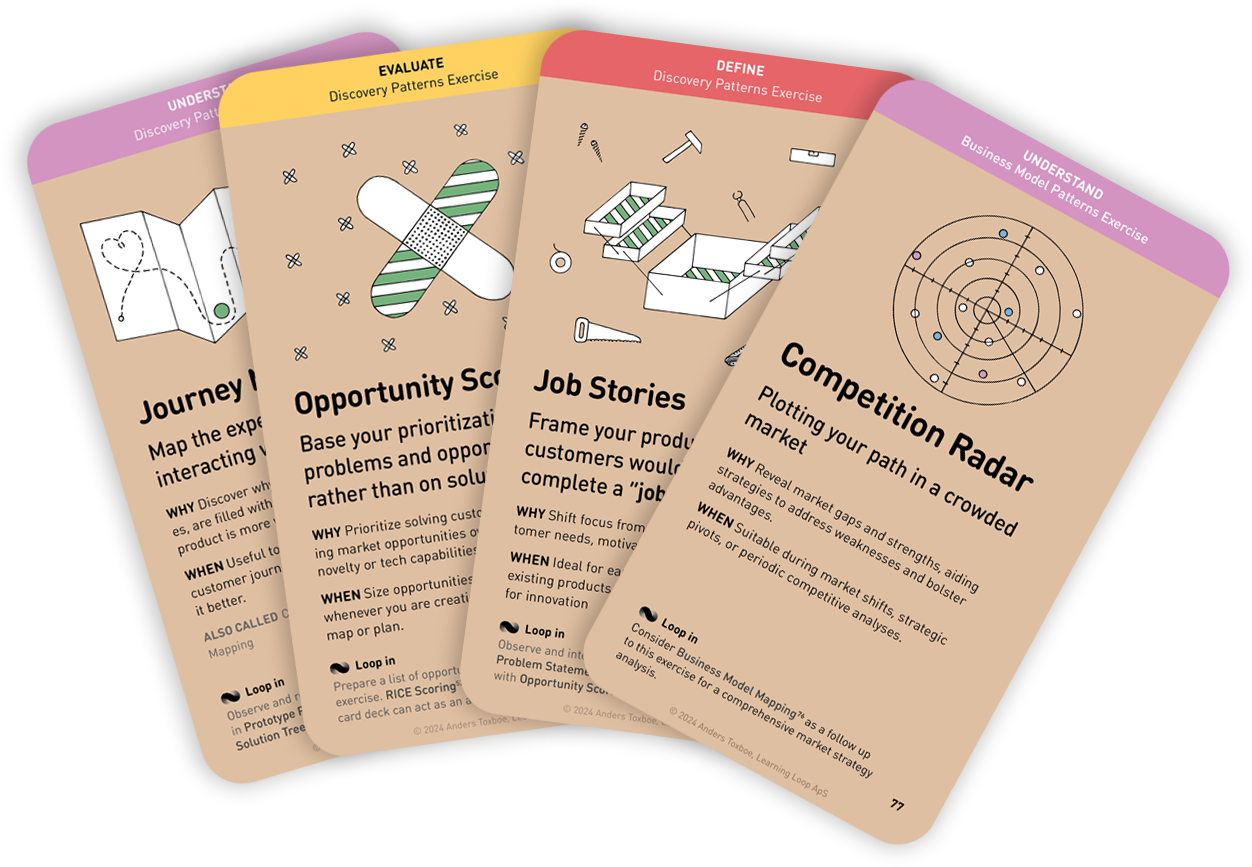
Why: Guide the team to understand the larger context in which their users exist to discover deeper, non-obvious insights
When: Ideate and synthesize a large number of ideas during the empathy building process
Instructions for running this play
- Present the problem to be explored and what aspect to dive into.
Example: Purchase behavior for cheap vs expensive items in a store. - Draw the following on a large surface and post sticky note a and b:

- Conduct a 10 minute Silent Storming with the group to consider how the problem changes with the context from situation a to situation b.
For example: How do purchase behaviors change as the cost of the item bought increases or decreases? From buying gum, to shoes, to a couch, to a car, to a house. - Let participants Playback their sticky notes by placing them along the dashed line in the fitting order.
Instructions for running this play
- Define the Challenge. Begin by defining the challenge to be investigated and the specific perspective to delve into.
- For instance, we can consider the concept of interaction with a digital product or physical object.
- Establish the Parameters. Sketch out the extremes on a large board. Frame the problem in terms of cost, size, and duration:
- Cost: “What if it had to cost more than a million dollars to implement?”, “What if it was under 25 cents?”
- Size: “What if it was physically larger than this room?”, “Smaller than a deck of cards”, “Had no physical presence”
- Duration: “Took more than four hours to complete the experience?”, “Less than 30 seconds?”
- Silent Storming. Organize a Silent Storming session for 15 minutes, asking the team to reflect on how the problem transforms when the conditions vary from one extreme to another.
- For instance: How does the interaction with a digital product or a physical object shift as the cost, size, or duration of the experience changes? From a simple click, to browsing an entire website, to sitting through a long digital event, or interacting with a tangible product of different scales.
- Share and Arrange. Allow participants to share and arrange their sticky notes by positioning them along the spectrum according to the fitting cost, size, or duration. This exercise will help visualize the range of solutions and stimulate innovative thinking.
Tips to perfect this play
Master and adapt the play to fit your context and needs.
Tip: Explore time scales
Apply the exercise to the dimension of time, exploring the challenge's evolution over different time scales
Tip: Try new contexts
Frame the challenge within different contexts, such as cultural, historical, or global perspectives, to uncover new insights and possibilities
A collection of workshop exercises that will help you ditch dull meetings and facilitate with confidence. It will help you master the design process and have more productive time with your team. The card deck will be ready for purchase in the end of 2026 and is now undergoing rigorous testing.
Reserve your deck!- Design Thinking Bootleg by Stanford d.school
- Powers of Ten
- Powers of Ten
- Exploring Size
